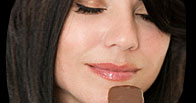What Is Retinol?
Retinol is a vitamin A derivative that is available over the counter as a topical solution for acne treatment. Retinol skin care formula is also used to improve wrinkles, pigmentation, and skin problems that are associated with sun damage. Retinol can be applied liberally to the upper arms, neck, face, and chest. Retinol is often combined with vitamin C or hydroxy acid skin products in order to keep the skin soft and healthy in its appearance.
How Does Retinol Work?
As an acne treatment, Retinol works by stimulating the growth and functioning of new skin cells while accelerating the process through which abnormal cells are shed from the skin surface. Retinol skin care treatments are able to reach the internal skin layers and promote an increase in elastin and collagen production. It is recommended that Retinol be applied daily for a period of 12 weeks so that its effects on the skin can be fully recognized.
Benefits of a Retinol Cream
Retinol cream is beneficial for many types of skin problems. Those who apply the cream to affected areas of the skin on a regular basis will notice a relatively quick improvement in their appearance. The use of Retinol has successfully diminished or eliminated conditions such as age spots, uneven complexion, fine lines, acne scars, warts, and rosacea. While Retinol is known to be fairly gentle on the skin and does not produce excessive irritation, it is very slow to get rid of acne.
What are the Side Effects of Retinol?
Like other products that are marketed or prescribed for acne treatment, Retinol does have some side effects. Retinol's use can initially produce symptoms such as reddened, warm, or tingling skin. Retinol skin care products can also cause some people to be more sensitive to sunlight, and it is recommended to apply the cream at nighttime to avoid immediate sun exposure. Other side effects of this product include flaky or scaly skin. Retinol is generally not safe for use during pregnancy.
Retinol for Acne Treatment
Retinol most often improves softness and elasticity of the skin soon after its initial use and clears up acne on a more gradual basis. Though Retinol does improve the appearance of acne, it is primarily effective for treating age-related skin issues such as wrinkling and the deepening of facial lines. Acne treatment ingredients such as benzoyl peroxide are far more effective acne treatments.




